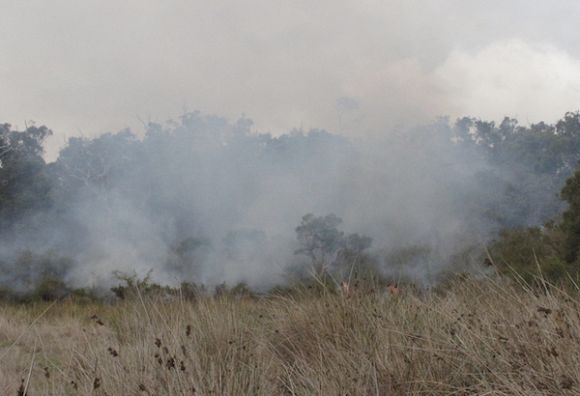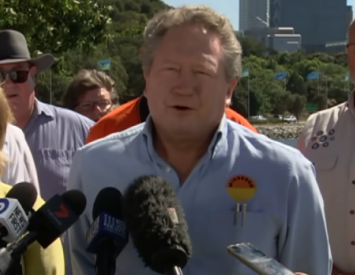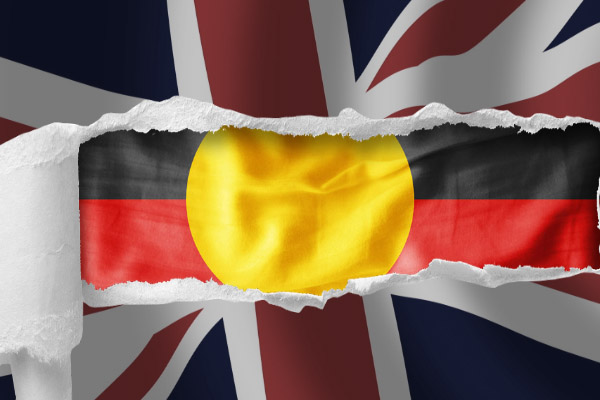While some regard the Pilbara as a site rich in iron ore, we must remember the importance of the land as sacred to Indigenous Elders, writes Dr Robert Wood.
I HAVE BEEN going to the Pilbara for 20 years. That doesn’t make me an expert, but gives me a little bit of a feel for the country and the community. My gumbarli, or brother-in-law, is a Ngarluma traditional owner, which means he carries in himself an appreciation for the place that is infinite. That needs to be respected – now more than ever – and his perspective informs my own view of the region.
The Pilbara is one piston in the economic engine of the nation. This is because of mining and, to a lesser extent, pastoralism. And within that, it is about iron ore. Iron ore is the backbone of the local economy there and it is also globally connected.
I have been present when Chinese executives extolled the virtue of mines to local Indigenous people and one cannot doubt the importance of complicated networks of trade. That is not the point of this article. The point is that there is an imbalance in how trade is conducted in the Pilbara.
Readers with a historical view of the place will note the long tradition of slavery there, going back to “blackbirding” and the exploitation of people in pearl diving over a century ago. This was local First Nations people, but also “Malays” as they were known and which encompassed a great many Asian communities that were brought there for that purpose. In Cossack, for example, there is a Japanese cemetery of people that were used as a labour force in the pearling industry. This is the complex terrain of colonialism as it exists in the Pilbara and it continues to matter to how power manifests today.
In the contemporary landscape though, the extractive industries leverage their power to get their way. Consultative processes often pay lip service to the rights of people on the ground. We respect your culture and your sovereignty as long as we can take what we want. We listen to Native Title until we want to dig up that piece of ground. And, you can have this place back as long as we take everything we can. Your hunting and fishing rights are well and good until we need to put in a rail line or start a new mine.
I was prompted to write this piece by Banjima people’s decision to lift the lid on the inequitable balance of power in their arrangements with mining companies, especially BHP. This follows the desecration of sacred sites by Rio Tinto recently and is an important reminder of the struggle for respect and resources that is common to the Pilbara.
It is, of course, not only here that we see such issues play out — Adani is one other such example as suggested by the eviction notice served to them by Wangan and Jagalingou traditional owners suggests. There is also the ongoing issue of the Djab Wurrung birthing trees and more activist-minded readers will recall the fight about Jabiluka in the Northern Territory.
The point, however, is that the balance of power is unfair. It is enough to suggest that there is an ongoing genocide of Aboriginal people in Australia today; less remarked upon is what that means when it comes to mining and resources. We should not, inter alia, assume that how we speak about this issue condemns everyone that works in mining, or everyone in private industry. It is complex.
What it means, however, and what is the main argument here, is that Banjima, Ngarluma and Yindjibarndi people deserve a greater say in what happens on their country. If all of Australia is sacred and sovereign and we know that terra nullius is a grand fiction, then perhaps we need to rethink all of the negotiations that take place afterwards. Here, it means BHP must bow to Banjima wishes, not the other way around.
A sacred site is a sacred site, which means it is priceless in the eyes of the market, so valuable that we cannot put a dollar value on it. By respecting sovereignty, we might begin to see that country has a role to play in our everyday lives, one that exceeds simple profit logic that expands the bottom line while undermining a truly good life.
The Pilbara is one place among many in Australia, but it matters to the people who love it. It does not have the romantic allure of the Kimberly and many readers will think that the ship has sailed, that its role is simply to supply iron ore to the world, but the fight for the future of the place is important to who we are. Supporting Banjima Elders means letting them decide what country is mined rather than destroying paradise for a fistful of dollars.
Dr Robert Wood is chair of PEN Perth. A Malayali with East Indian Ocean connections, he lives on Noongar Country in Western Australia. The author of four books, Robert has held fellowships at the University of Pennsylvania and Columbia University.
Related Articles
- Dickensian Australia — homeless orphans and ten-year-old children gaoled
- Suicide toll may decrease for Australia overall but not for First Peoples
- The shocking truth of Australia's Indigenous incarcerated
 This work is licensed under a Creative Commons Attribution-NonCommercial-NoDerivs 3.0 Australia License
This work is licensed under a Creative Commons Attribution-NonCommercial-NoDerivs 3.0 Australia License
Support independent journalism Subscribe to IA.














